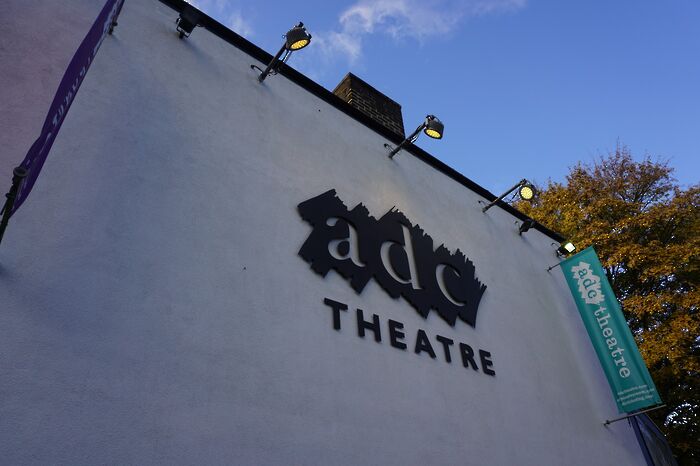The barriers to access that no one’s talking about
Cecily Bateman highlights the obstacles less privileged students are up against when deciding whether to apply to Cambridge

Each year, as the October 15th deadline approaches, thousands will be nervously checking their UCAS applications to apply to Cambridge. Only 30% of them will be from a state-maintained, non-selective school attended by 89% of the population. That’s a problem.
Though Cambridge admission statistics receive considerable media attention, access is primarily talked about as a binary: to apply to Cambridge or not to apply to Cambridge. This overlooks a key nuance; access to all degrees is not equal and there are considerable structural barriers, running through higher education and wider society, which make some degrees enclaves of the wealthy rather than representative of the population.
These can take the forms of entry requirements that make it almost impossible for any comprehensive-educated person to apply. Take Classics, the subject with the highest acceptance rate (48.8% in 2017), the most popular form of which requires Latin A level. Even assuming that private and grammar school pupils all have the option to take Latin (which is not always the case) along with a small minority of comprehensive students (less than 12,500 of whom even take the GCSE), it can be deduced that less than 25% of each year group even have the opportunity to take a subject compulsory for the course. Ironically, the 4 year course that does not require Latin has a lower acceptance rate and a lower number of places. This is a case that could be solved at the University level; the Oxford Classics course does not require Latin and consequently has far more competitive application figures.
Other subjects have more structural problems which are difficult for the University to solve on its own. Music is a subject often cut from state schools’ curricula. If a student doesn’t have access to Music A level - a subject in which it is incredibly difficult to do well without private music lessons - the University accepts Grade 8 Music theory, which is again inaccessible without the money to pay for tutoring. Obviously there are some exceptions: the self-taught music enthusiast, the student who reached grammar school without tutoring. But essentially, there are a minority of Cambridge degrees that by their very nature have a wealth qualification.
“Access to all degrees is not equal and there are considerable structural barriers”
A large and unacknowledged factor in why comprehensive-educated students are a rarity in some degrees is because they simply are not applying. Sometimes this is due to simple lack of awareness, as with History of Art or Theology, which could be improved by increased subject-specific outreach to comprehensive schools. However, a large factor in this is self-selection: the knowledge that certain groups will come in with advantages which put comprehensive-educated people off from applying, not wanting to be in an environment where they come in already at a disadvantage.
In these cases, there is also an expectation that the comprehensive-educated person will be more socially isolated. That Cambridge culture is dominated by certain wealthy social classes is no secret; inside the 64.1 % ‘state school’ acceptance statistic hides the 23.26% that were actually from grammar schools, notoriously and increasingly only accessible to those able to afford private tuition. Even state school representation is dominated by elite London state schools in areas where the average income is high and which, though state-maintained, are very different culturally to the average state school.
Now imagine this culture difference concentrated and distilled into a degree.
Comprehensive-educated students often rightly suspect that these applicants will have extra qualifications and advantages. Perhaps tutoring for outside exams such as STEP, participation in arts classes or events that improve their skills base, or exposure to experiences and literature: all of these things enable a much greater knowledge of their degree area in subjects that are generally not offered in state schools. Due to these differences in the background and base level which applicants set out from, comprehensive students are likely to ask themselves how their coursemates could support them and understand the different struggles they will encounter.
We need to start thinking about access differently, looking at the problem with a more nuanced view rather than seeing applying as a binary. Some degrees have wealth qualifications that could be removed, some are made inaccessible by a complex web of social factors largely outside of the University’s control, but neither of these problems can be solved unless they are acknowledged.
 Features / Beyond the porters’ lodge: is life better outside college?24 February 2026
Features / Beyond the porters’ lodge: is life better outside college?24 February 2026 News / Cambridge academics sign open letter criticising research funding changes22 February 2026
News / Cambridge academics sign open letter criticising research funding changes22 February 2026 Theatre / Footlights Spring Revue? Don’t Mind if I Do!25 February 2026
Theatre / Footlights Spring Revue? Don’t Mind if I Do!25 February 2026 News / Cambridge and Manchester Universities meet for innovation partnership26 February 2026
News / Cambridge and Manchester Universities meet for innovation partnership26 February 2026 Fashion / The evolution of the academic gown24 February 2026
Fashion / The evolution of the academic gown24 February 2026










![How to Create an Attractive Freelancer Portfolio [5 Tips & Examples]](https://www.varsity.co.uk/images/dyn/ecms/320/180/2026/02/vitaly-gariev-ho2tNOWZYXM-unsplash-scaled.jpg)